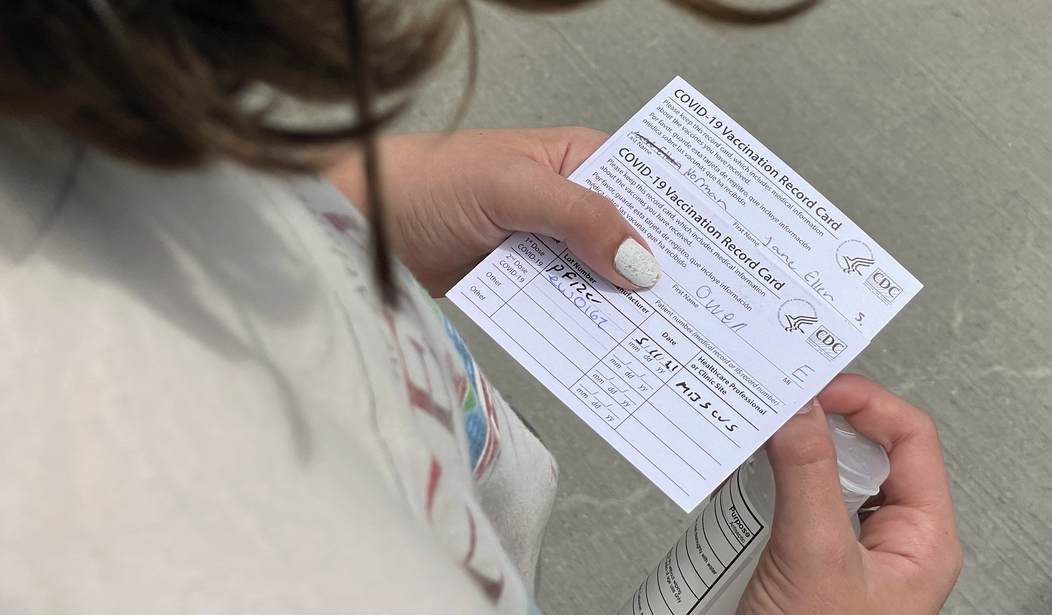Editor's Note: This post has been updated to include statements from Reps. Dan Crenshaw and Steven Palazzo and the headline has been changed to reflect the disagreement among Republicans.
Dozens of House Republicans joined Democrats on Tuesday to pass a bill that some claim funds a federal vaccination database and gives more power to the Centers for Disease Control and Prevention and Public Health Department to share information with the federal government.
H.R. 550, known as the Immunization Infrastructure Modernization Act, allocates $400 million to fund "immunization system data modernization and expansion." The bill's text describes the system as "a confidential, population-based, computerized database that records immunization doses administered by any health care provider to persons within the geographic area covered by that database."
In total, 80 Republicans voted for H.R. 550, including four who co-sponsored the legislation: Reps. Larry Bucshon (R-IN), James Baird (R-IN), David McKinley (R-WV), and Brian Fitzpatrick (R-PA).
According to Rep. Mary Miller, who voted "no," the bill will only make it easier for the federal government to target unvaccinated Americans.
Recommended
"These systems are designed to allow for the sharing of crucial information and maintenance of records. Do we really trust the government to protect our medical records?" the Illinois Republican told Breitbart. "The bill's author even bragged in her press release that these systems will help the government remind patients when they are due for a recommended vaccine and identify areas with low vaccination rates to ensure equitable distribution of vaccines. This was clearly a legislative tool to enforce vaccine mandates and force their Orwellian rules onto those who do not comply."
Fox News's Tucker Carlson also sounded the alarm about the bill.
Tucker Carlson & @joekent16jan19 Calling Out The 80 Republicans Who Voted w/ Democrats To Fund A Vaccine Database
— The Columbia Bugle ???? (@ColumbiaBugle) December 3, 2021
Joe: "If we don't start pushing back, they are going to keep taking more & more of our liberties, and the @GOP is absolutely derelict in their duties right now." pic.twitter.com/zHOiPYvQ9P
Here are the 80 House Republicans who voted to fund the Federal Vaccine Database:
— Maria (@BlondieforTrump) December 2, 2021
Passed - H.R. 550: Immunization Infrastructure Modernization Act of 2021 https://t.co/0J0jSNbvYT via @GovTrack
Rep. Dan Crenshaw (R-TX), pushed back on claims about the database, however.
"Let’s expose some liars! All the Republicans lying to you about the 'vaccine database' are doing so because they think it makes them look like 'real conservatives,'" he said on Instagram. "Here’s the truth: there was no new database created. Your state has ALWAYS run a version of the Immunization Information System (IIS). Every single state has one. In March, Biden allocated $500M to “strengthen” those databases. Some Republicans were rightfully worried blue states would use that extra money to track individual data, so they crafted this bill to put safeguards in place, ensure ALL the data is anonymous and non-trackable. So it is literally the opposite of what you think it is. The Republicans in Congress who voted against it."
Palazzo also said the legislation does not fund a new federal database.
“I read through H.R. 550 thoroughly and consulted information directly from the Republican cosponsors of this bill, and NOWHERE did I find any indication that it would create a new federal database,” the Mississippi Republican told Y'all Politics. “I have always been a strong advocate for the right to privacy and would have been the first to vote against this bill if I believed it jeopardized anyone’s confidential information.”
He continued: “I voted for this bill to make sure funds are used to secure existing state databases and to keep all information completely confidential rather than left to be used for nefarious purposes."

























